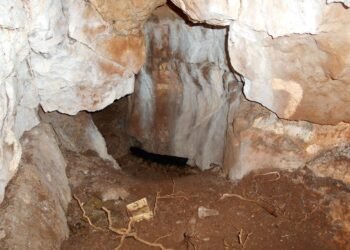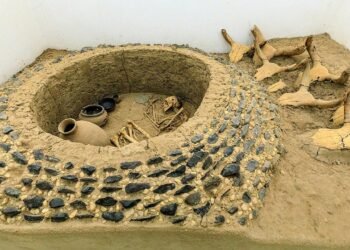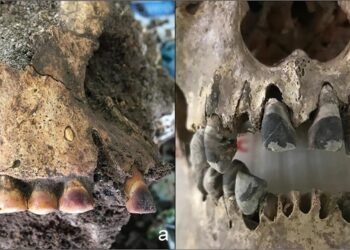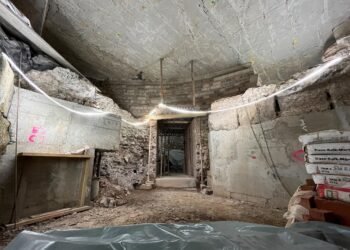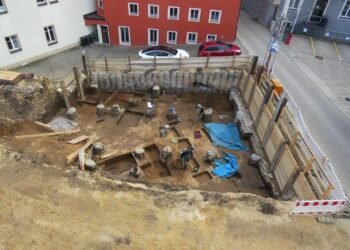Archaeologists have uncovered a Bronze Age wooden wishing well in Bavaria, Germany. More than 100 ancient artifacts have been found in the well, which is over 3,000 years old.
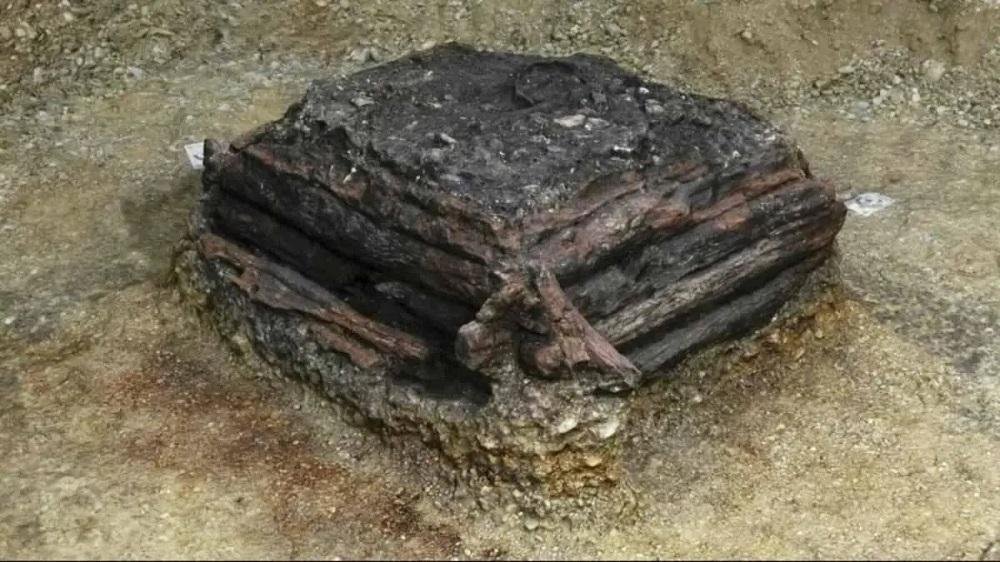
You’ve probably heard of such wells, in which people put a coin to make a wish. In contrast to modern-day wishing wells, where people toss coins and make wishes, the items in this well were placed there for “ritual purposes” in what is now the Bavarian town of Germering.
More than 70 well-preserved clay vessels were discovered, including numerous decorative bowls, cups, and pots used for special occasions.
As they were also used as funeral gifts during the Middle Bronze Age, the ceramics are not daily crockery, but rather finely crafted, decorated bowls, cups, and jugs (circa 1800 to 1200 BCE).
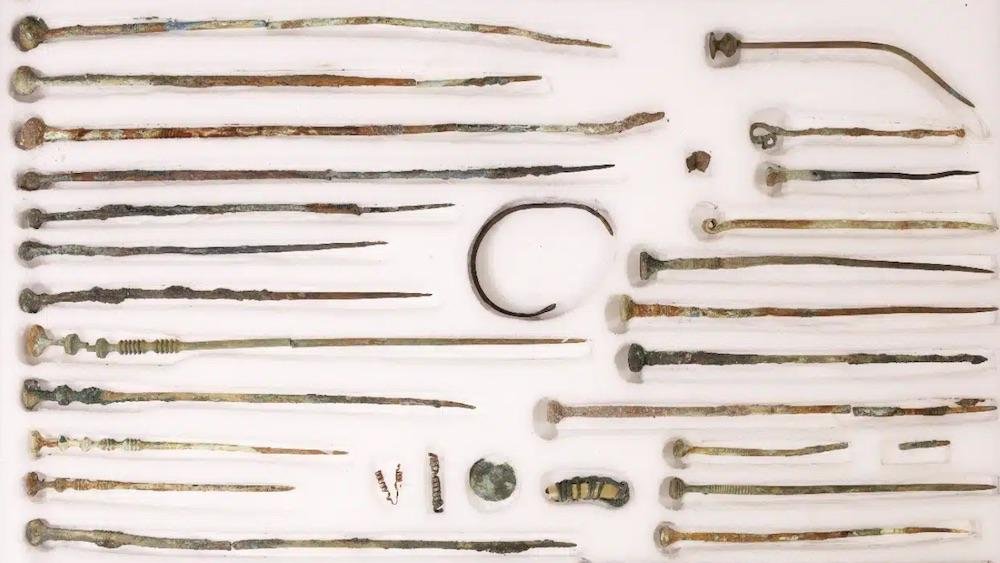
Archaeologists also discovered 26 bronze clothing pins, a bracelet, four amber beads, two metal spirals, a mounted animal tooth and a wooden scoop.
“It is extremely rare for a well to survive more than 3,000 years so well,” said Jochen Haberstroh, an archaeologist with the Bavarian State Agency for Monument Preservation (BLFD). “Its wooden walls are completely preserved on the ground and partly still moistened by groundwater. That also explains the good condition of the finds made of organic materials, which are now being examined more closely. We hope that this will provide us with more information about the everyday life of the settlers at the time.”
According to archaeologists from the BLFD, the sheer number and quality of the artifacts would imply that they were dropped purposefully and unharmed into the well, maybe as part of cult rituals.
“They were intended as sacrifices for a good harvest,” Mathias Pfeil, general conservator for the Bavarian State Office for Monument Conservation, said in the statement.



